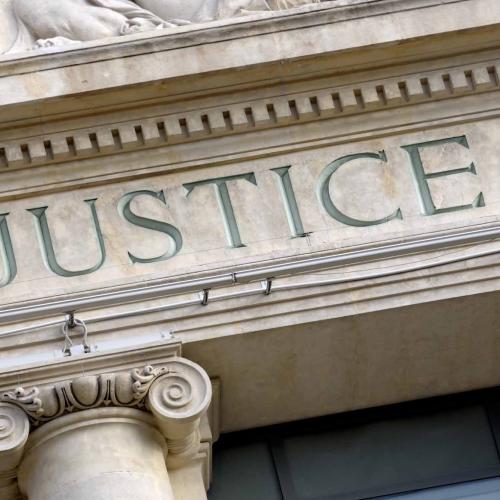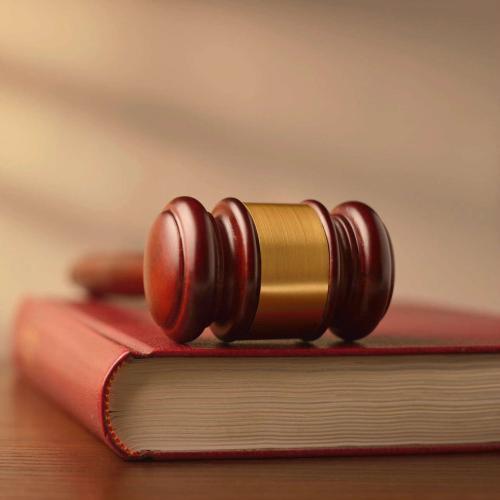The case of Kyles v. Whitley, 514 U.S. 419 (1995), is a landmark decision by the United States Supreme Court that profoundly influenced the interpretation and application of the Brady Doctrine. This doctrine, established in the seminal case of Brady v. Maryland, 373 U.S. 83 (1963), requires the prosecution to disclose exculpatory evidence to the defense. Kyles v. Whitley not only reaffirmed the principles set forth in Brady but also expanded the obligations of prosecutors under the Brady Doctrine, thereby enhancing the fairness of criminal trials in the American legal system.
General Overview of the Case
Kyles v. Whitley arose from the 1984 murder of a woman named Delores Dye in a grocery store parking lot in New Orleans, Louisiana. Following the crime, four witnesses provided descriptions of the perpetrator, and police soon focused their investigation on Curtis Kyles. The prosecution's case against Kyles was largely circumstantial and hinged on the testimony of a paid informant, Joseph "Beanie" Wallace, who claimed Kyles had admitted to committing the murder. Based on this testimony and other evidence, Kyles was convicted of first-degree murder and sentenced to death.
However, Kyles maintained his innocence and, after exhausting state appeals, sought relief in federal court. The key issue that emerged during these proceedings was whether the prosecution had failed to disclose evidence favorable to Kyles, which could have significantly impacted the outcome of his trial. Specifically, Kyles argued that the prosecution had withheld several pieces of exculpatory evidence, including inconsistent eyewitness descriptions, evidence suggesting Wallace himself might have been the murderer, and indications that police informants had received compensation for their testimony.
The Brady Doctrine and Its Importance
The Brady Doctrine, as established in Brady v. Maryland, holds that the prosecution must disclose any evidence favorable to the defendant that is material to either guilt or punishment. This rule is grounded in the principle of fairness in the criminal justice system and seeks to prevent miscarriages of justice caused by the suppression of exculpatory evidence. Under Brady, evidence is considered "material" if there is a reasonable probability that, had the evidence been disclosed, the result of the proceeding would have been different.
In Brady v. Maryland, the Supreme Court emphasized that the suppression of such evidence violates the Due Process Clause of the Fourteenth Amendment, which guarantees every defendant the right to a fair trial. The decision in Brady was a watershed moment in American criminal law, establishing a super-precedent that profoundly shaped the landscape of prosecutorial obligations and defendants' rights.
The importance of the Brady Doctrine cannot be overstated. It is a cornerstone of the due process protections afforded to criminal defendants, ensuring that the adversarial process functions as it should. By mandating the disclosure of exculpatory evidence, the Brady Doctrine helps to level the playing field between the prosecution and the defense, mitigating the inherent power imbalance that exists in criminal trials. This doctrine has been instrumental in uncovering wrongful convictions and ensuring that justice is not merely a procedural formality but a substantive reality.
Kyles v. Whitley: Extending the Brady Doctrine
The Supreme Court's decision in Kyles v. Whitley significantly extended the Brady Doctrine by clarifying the scope of the prosecution's duty to disclose exculpatory evidence. In a 5-4 decision authored by Justice David Souter, the Court held that the cumulative effect of the suppressed evidence in Kyles's case undermined confidence in the jury's verdict, warranting a new trial. This ruling marked a critical expansion of the Brady Doctrine in several key ways.
The Concept of "Cumulative" Evidence
One of the most important aspects of the Kyles decision is the Court's emphasis on the "cumulative" nature of the suppressed evidence. In previous cases, courts often evaluated each piece of withheld evidence in isolation, asking whether any single piece of evidence was material enough to have changed the outcome of the trial. However, in Kyles, the Supreme Court shifted this analysis by considering the collective impact of all the suppressed evidence. The Court reasoned that when viewed together, the undisclosed evidence could have created reasonable doubt in the minds of the jurors, which would have significantly affected the trial's outcome.
This cumulative approach represents a broader understanding of what constitutes a fair trial. It recognizes that the interplay between different pieces of evidence can be critical to the defense's ability to challenge the prosecution's case. By requiring courts to consider the totality of suppressed evidence, Kyles ensures that defendants receive a more comprehensive assessment of whether their due process rights were violated.
The "Prosecutor's Duty" Clarified
Kyles v. Whitley also clarified the scope of the prosecutor's duty under the Brady Doctrine. The Court held that a prosecutor's responsibility to disclose exculpatory evidence extends beyond the evidence that is directly in the prosecutor's possession. Instead, the prosecution is responsible for any favorable evidence known to others acting on the government's behalf, including the police and other investigative agencies. This means that prosecutors cannot escape Brady obligations by claiming ignorance of evidence held by the police; they must actively ensure that all such evidence is disclosed to the defense.
This aspect of the Kyles ruling is particularly significant because it underscores the prosecutor's role as a minister of justice rather than merely an advocate for conviction. The decision reinforces the idea that the prosecution has an affirmative duty to seek out and disclose exculpatory evidence, thus promoting greater accountability within the criminal justice system.
The Standard of Materiality
The Kyles decision also refined the standard for determining the materiality of suppressed evidence under Brady. The Court reiterated that the materiality standard does not require the defendant to demonstrate that the suppressed evidence would have resulted in an acquittal. Rather, the standard is whether there is a "reasonable probability" that, had the evidence been disclosed, the outcome of the trial would have been different. A "reasonable probability" in this context is one that undermines confidence in the verdict.
By maintaining this lower threshold for materiality, the Kyles decision made it easier for defendants to challenge convictions based on prosecutorial misconduct related to suppressed evidence. This approach is consistent with the overarching goal of the Brady Doctrine—to ensure that trials are fair and that verdicts are reliable. The Court's emphasis on maintaining confidence in the verdict reflects a broader concern with the integrity of the criminal justice system.
Impact and Legacy of Kyles v. Whitley
The impact of Kyles v. Whitley on American criminal jurisprudence has been profound. By expanding the Brady Doctrine, the decision has enhanced the protections afforded to defendants and has placed greater responsibilities on prosecutors to ensure that justice is done. The principles established in Kyles have been cited in numerous subsequent cases, influencing how courts across the country evaluate claims of Brady violations.
Moreover, Kyles has had a lasting influence on the legal community's understanding of prosecutorial ethics. It has reinforced the idea that the pursuit of justice requires more than simply winning convictions; it requires a commitment to fairness and transparency. In this sense, Kyles v. Whitley has played a crucial role in shaping the culture of prosecution, promoting practices that prioritize the rights of the accused and the integrity of the legal process.
Despite its significance, the principles established in Kyles have not always been easy to enforce. Prosecutorial misconduct, including the suppression of exculpatory evidence, remains a persistent problem in the criminal justice system. However, the decision in Kyles provides a powerful tool for defense attorneys to challenge unjust convictions and serves as a reminder of the ongoing need for vigilance in protecting defendants' rights.
Kyles v. Whitley is a landmark case that expanded the scope and scale of the Brady Doctrine, reinforcing the principle that fairness and transparency are essential to the pursuit of justice. By emphasizing the cumulative impact of suppressed evidence, clarifying the prosecutor's duty to disclose, and refining the standard of materiality, the Supreme Court in Kyles ensured that the Brady Doctrine would continue to evolve as a robust safeguard of defendants' rights.
The case stands as a testament to the ongoing struggle to balance the scales of justice in the American legal system. It serves as a reminder that the quest for truth in criminal proceedings requires not only the diligent efforts of defense attorneys and judges but also the ethical conduct of prosecutors. As a cornerstone of due process, the Brady Doctrine—strengthened by the precedent set in Kyles v. Whitley—continues to play a vital role in ensuring that every defendant receives a fair trial.



